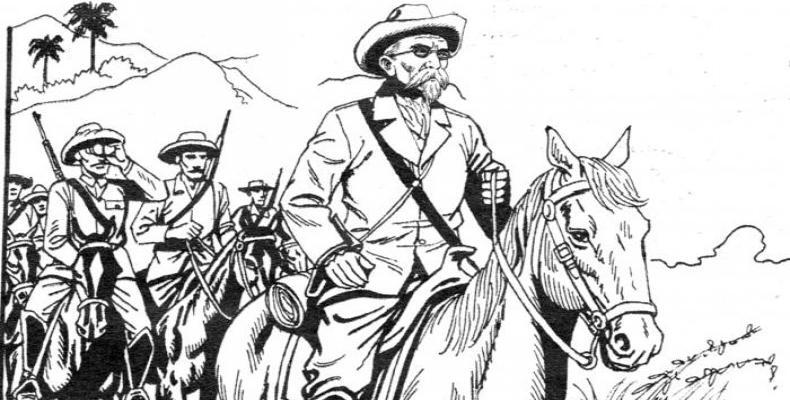Havana, June 17 (RHC)-- Cuban President Miguel Díaz-Canel highlighted this Wednesday the internationalist legacy of General Máximo Gómez, of Dominican origin and one of the leaders of the independence wars against Spanish colonialism in Cuba.
In his Twitter account, the president wrote: "A loyal soldier whose legacy of patriotism and internationalism is very much present in our patriotic values."
In an article in the daily newspaper Granma, the President of the Institute of Cuban History, Joel Cordoví, recalled the circumstances of Maximo Gomez's death, which had been subjected to exhausting efforts to prevent the re-election of Tomás Estrada Palma, the country's president after the establishment of the Republic with limited sovereignty, dependent on the United States.
According to Clemencia Baez, the firstborn of the Gomez-Toro family, until her last hours her father thought about and lived Cuban politics, seeking to reorganize it and channel it in accordance with the provisions of the Montecristi Manifesto, which she signed with national hero Jose Marti shortly before setting sail for Cuba.
The Generalissimo, as he is known among Cubans, was born on November 18, 1836 in Bani, Dominican Republic, and in 1865 he settled in Cuba with his family where he joined the independence movement initiated by Carlos Manuel de Céspedes on October 10, 1868.
His skill as a military strategist was demonstrated both in the Ten Years' War (1868-1878) and in the War of 1895, when he held the highest responsibilities within the Cuban Liberation Army.
According to historians, he defied death in more than 235 battles without suffering more than two wounds and eventually died in his bed, struck down by septicaemia, at the age of 69.


